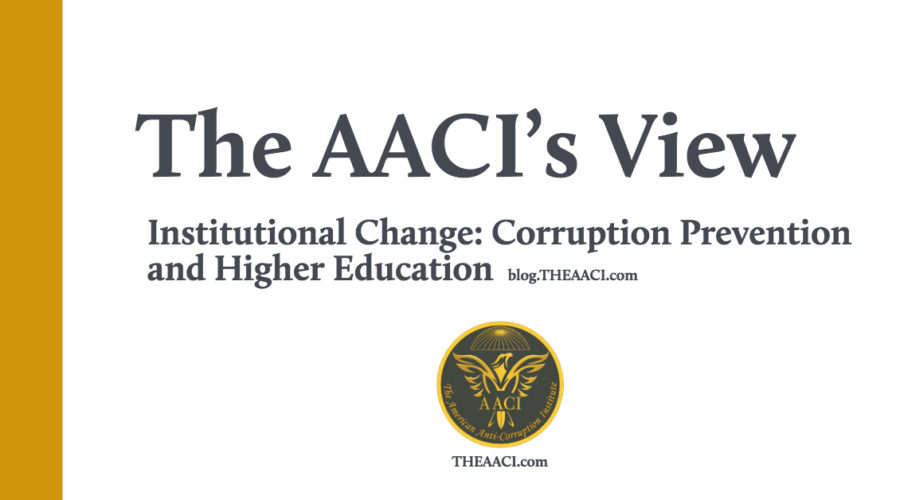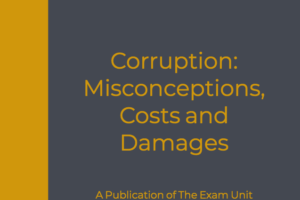Institutional Change: Corruption Prevention and Higher Education
Corruption is complicated. The extent of its sophistication and damage matches those of the underlying abused power by culprits. It is irrefutable that the steady growth of corruption paves the way for the nation’s failure. On Tuesday, August 21, 2018, Sen. Elizabeth Warren, D-Mass., debuted ambitious new legislation ( Anti-Corruption and Public Integrity Act ) designed to fight government corruption. Though many columnists agree with Sen. Elizabeth Warren’s proposed legislation, we prefer to wait until it becomes public and read it. But eradicating corruption requires more than a piece of legislation. It requires a well-planned and executed institutional change.
Higher education institutions in both developed and developing countries are not doing enough to play an effective role in the fight against the nations’ cancer. Most graduates of these academic institutions, who are presumed to become decision makers in their countries, are not equipped with any level of the anti-corruption intelligence. The significance of the role of academic institutions in the fight against corruption is unparalleled. They not only design and form the conscious of tomorrow’s leaders, but also provocate the status quo in other relevant formal and informal institutions.
Corruption became an industry costing the world economy more than USD 4 trillion a year where developing countries suffer the most. We strongly advocate supporting the academic institutions of developing countries and urge all those who are concerned to follow our suit. The youth of developing countries will not only shape the fate of their countries but the quality of their anti-corruption mindset will also have dramatic ramifications on the world economy and security.
Academic institutions of higher education that do not prepare their students to prevent, deter and detect corruption are either negligent, grossly negligent, outdated, or, at worst, corrupt.











































